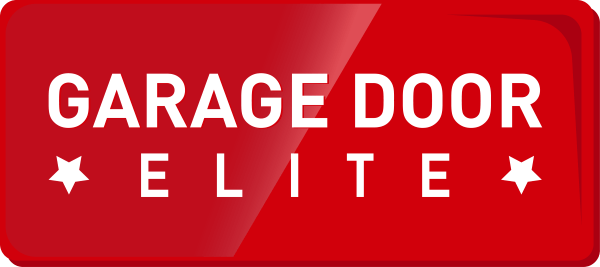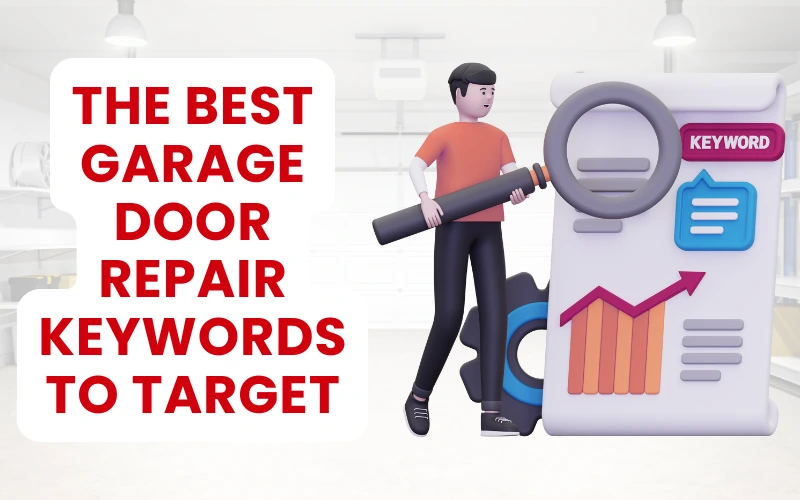If you run a garage door repair business, your next customer is likely searching for you online. With competition increasing and more homeowners turning to Google to find services, showing up in search results is no longer optional—it’s essential. The keyword “garage door repair” receives over 200,000 searches per month, making it one of the most competitive local service terms.
The right keyword strategy can help your business rank higher, attract qualified leads, and convert casual browsers into paying customers. This blog breaks down everything you need to know: from understanding keyword intent to deploying specific phrases that actually drive traffic. You’ll walk away with proven keywords across different categories, each chosen to help you grow your visibility and bookings.
Category-wise Garage Door Repair Keywords to Target
1. Primary Service Keywords
Primary keywords are the backbone of your SEO strategy. These are the high-volume, high-relevance terms directly associated with the core services your garage door business provides. Because they reflect the most common queries users type into search engines, ranking for these terms is essential for capturing a large share of the online search demand.
These high-volume, core terms target your main services.
Examples:
- Garage Door Repair
- Garage Door Opener Repair
- Garage Door Installation
- Overhead Garage Door Repair
- Same-day Garage Door Repair
- Emergency Garage Door Repair
- Garage Door Spring Replacement
- Garage Door Panel Replacement
- Garage Door Cable Repair
- Garage Door Motor Repair
- Garage Door Maintenance Services
- Garage Door Hinge Replacement
- Garage Door Tune Up
- Garage Door Troubleshooting
- Garage Door Sensor Repair
Use on: homepage, service pages, headers, and title tags.
2. Long-Tail Keywords
Long-tail keywords are more detailed and specific than primary keywords. While they typically have lower search volumes, they indicate stronger buyer intent. These are perfect for attracting users who are closer to making a purchase decision and searching with more context.
These more specific phrases show higher intent and can rank more easily.
Examples:
- Affordable Garage Door Repair Services
- Garage Door Repair For Rental Property
- Same-Day Garage Door Opener Replacement
- How Much Does Garage Door Repair Cost
- Garage Door Sensor Repair Near Me
- Best Time To Replace A Garage Door
- Garage Door Insulation Installation Services
- How To Fix A Noisy Garage Door
- Garage Door Installation For New Homes
- Garage Door Spring Adjustment Services
- Garage Door Repair With Warranty
- Garage Door Opener Setup Near Me
- Garage Door Alignment Services
- Garage Door Security Upgrade Service
- Garage Door Keypad Installation Near Me
Use on: blog posts, FAQs, and conversion-focused landing pages.
3. Local Keywords
Local keywords are crucial for businesses that rely on geographically targeted traffic. These keywords include city or region-specific phrases that help your business appear in local search results and on Google Maps, which is especially useful for driving nearby customers to your services.
These geo-modified terms help you win your local market.
Examples:
- Garage Door Repair In Chicago
- Garage Door Opener Installation Los Angeles
- Emergency Garage Door Service New York
- Best Garage Door Technician Miami
- Garage Door Installation Phoenix
- Affordable Garage Door Repair Dallas
- Garage Door Spring Repair Houston
- Garage Door Tune Up San Diego
- Garage Door Opener Replacement In Denver
- Garage Door Cable Fix Atlanta
- Garage Door Motor Repair In Seattle
- Garage Door Panel Service Boston
- Garage Door Roller Replacement San Jose
- Garage Door Contractor Las Vegas
- Garage Door Hinge Repair Austin
Use on: location pages, Google Business Profile, and citations.
4. Informational Keywords
Informational keywords attract searchers who are looking to learn something rather than immediately buy. These are ideal for blog content and FAQs, helping build trust and authority by educating your audience. They’re also great for nurturing potential leads.
Great for blog content, these keywords attract traffic in the research phase.
Examples:
- How To Fix A Garage Door
- When To Replace Garage Door Springs
- What Causes Garage Doors To Get Stuck
- Garage Door Maintenance Checklist
- How To Lubricate Garage Door Rollers
- Best Garage Door Openers 2025
- How Long Does A Garage Door Last
- Troubleshooting Garage Door Openers
- Garage Door Safety Tips
- Garage Door Types Explained
- How To Fix a Garage Door Off-Track
- Garage Door Opener Vs Smart Opener
- Common Garage Door Problems
- How To Reset Garage Door Keypad
- How Garage Doors Work
Use on: blog section, resource hubs, and educational videos.
5. Transactional Keywords
Transactional keywords are used by people who are ready to take action, whether it’s booking a service or making a purchase. These are high-converting phrases and should be used heavily on your landing pages, calls to action, and PPC ad copy.
These keywords signal commercial intent — ready to buy.
Examples:
- Buy Garage Door Opener Installation
- Book Emergency Garage Door Repair
- Schedule Same Day Garage Door Service
- Best Deal on Garage Door Spring Replacement
- Hire a Garage Door Maintenance Service
- Top-Rated Garage Door Repair Near Me
- Get a Quote for Garage Door Installation
- Garage Door Opener Tune-Up Discount
- Discount Garage Door Panel Replacement
- Affordable Garage Door Motor Fix
- Garage Door Repair Coupon
- Garage Door Repair Service Online Booking
- Instant Quote for Garage Door Fix
- Subscribe to Garage Door Maintenance Plan
- Compare Garage Door Opener Installers
Use on: PPC campaigns, booking pages, and offer-driven landing pages.
6. Service-Specific Keywords
These keywords focus on specific components or repair needs within the broader category of garage door services. Using them allows you to target niche customer queries, reduce keyword competition, and improve relevancy for users with a clear intent.
Hyper-focused keywords are tied to each type of garage door service.
Examples:
- Garage Door Spring Replacement
- Garage Door Opener Repair
- Garage Door Cable Repair
- Garage Door Panel Repair
- Garage Door Motor Installation
- Garage Door Track Alignment
- Garage Door Roller Replacement
- Garage Door Remote Programming
- Garage Door Keypad Replacement
- Garage Door Sensor Adjustment
- Garage Door Weather Seal Replacement
- Garage Door Bottom Seal Fix
- Garage Door Hinge Replacement
- Garage Door Lock Installation
- Garage Door Strut Repair
Use on: individual service pages and blog explainers.
7. Branded Keywords
Branded keywords help you target customers already searching for trusted garage door brands. If you offer installation or repair for specific brands, optimizing for these keywords can significantly boost relevance and authority in the eyes of both Google and consumers.
Capture searchers looking for trusted brand names you service.
Examples:
- LiftMaster garage door repair,
- Genie garage door opener repair,
- Wayne Dalton garage door installation
Use on: brand service pages, reviews, and comparison content.
8. Competitor Keywords
Competitor keywords are strategic terms that mention or reference rival companies or products. By targeting these, you can position your business as a better alternative and attract customers who are still evaluating their options or looking for second opinions.
Used to intercept customers comparing your business with others.
Examples:
- Garage Door Repair Like Precision
- Cheaper Alternative to Overhead Door Company
- Compare LiftMaster and Genie Services
- Garage Door Brands Similar to Clopay
- Garage Door Installers Like Sears
- Compare Garage Door Service Plans
- Garage Door Company Better Than Precision
- Garage Door Opener Reviews: LiftMaster vs Chamberlain
Use on: comparison blogs, pricing pages, and testimonials.
How to Use These Keywords on Your Website
Each category of keywords you’ve just explored plays a unique role in your website’s content strategy. Knowing where and how to place them can make or break your SEO performance. Here’s a deeper dive into how to effectively implement these keyword types:
1. Home & Service Pages: These pages are your digital storefront. Use primary and service-specific keywords naturally in your H1 and H2 headers, introductory paragraphs, image alt text, and meta descriptions. This helps Google understand your core services and improves ranking for high-intent searches.
Given that the global garage and overhead doors market is projected to grow from $6.99 billion in 2022 to $9.94 billion by 2029, at a CAGR of 5.2%, it’s crucial to optimize these pages to capture a share of this expanding market (Fortune Business Insights).
2. Blog Posts: Blog content should serve two purposes: educate and attract. Incorporate long-tail and informational keywords to answer common customer questions or solve specific problems. These posts can funnel users from awareness to conversion by including internal links to service pages.
3. Location Pages: If your business serves multiple cities or regions, create separate landing pages for each. Use local keywords with city or neighborhood names in headings, URL slugs, and throughout the page. Include embedded maps, NAP (Name, Address, Phone), and schema markup to boost local SEO.
4. Google Business Profile: Your GBP listing is one of the most visible local SEO tools. Add local and branded keywords when describing services, service areas, and in the posts section. Keeping this optimized ensures higher chances of showing in the “Local Pack.”
5. PPC Ads: Use transactional and competitor-based keywords in your ad headlines and descriptions. These are designed to capture high-converting traffic. Make sure your landing pages reflect the same keyword intent for strong ad relevance and Quality Score.
The garage door repair services market is projected to reach USD 7.2 Billion by 2033 at a CAGR of 6.1% from 2026 to 2033 (Verified Market Reports).
SEO Maintenance: Track & Adjust
Keyword strategy is never “set it and forget it.” It needs consistent review and refinement. Here’s how to stay on top of performance and trends:
1. Monitor Rankings & Clicks: Use Google Search Console to track impressions, click-through rates (CTR), and rankings for each keyword. Identify which terms are gaining traction and which need work.
2. Discover New Opportunities: Platforms like Ahrefs or SEMrush help uncover emerging keyword trends, content gaps, and search terms your competitors are ranking for.
3. Optimize Existing Pages: Review underperforming pages. Add or refine keyword usage, update meta tags, or improve internal linking to boost their visibility.
4. Spy on Competitors: Analyze what keywords your top competitors are ranking for. Use this insight to create content that rivals or outperforms theirs.
5. Regular Content Updates: Refresh content regularly with updated stats, trends, and user search behavior. Staying relevant is key to maintaining top search positions.
Final Thoughts
If you’re serious about growing your garage door repair business, having the right keyword strategy is one of the smartest moves you can make. With more consumers searching online for local services, the businesses that win are those that understand how to target the terms their customers are actually using.
By implementing these garage door repair keywords to target, spanning everything from primary and service-specific keywords to local and long-tail terms, you’ll not only improve your search engine rankings but also connect with people who are ready to book your services.
Also Read- Best CRM for Small Businesses
Frequently Asked Questions (FAQs)
1.. How many keywords should I target per page?
It’s best to focus on one primary keyword and 2–4 related secondary keywords per page to maintain clarity and avoid keyword stuffing.
2. What’s the difference between long-tail and primary keywords?
Primary keywords are short, high-volume terms like “garage door repair.” Long-tail keywords are more specific, like “affordable garage door opener installation near me.”
3. How do I find the best keywords for my garage door business?
You can use tools like Google Keyword Planner, Ahrefs, or SEMrush to research keywords based on volume, competition, and commercial intent.
4. Why are local keywords important for garage door companies?
Most garage door repair searches are local. Including city or region-specific keywords helps your business rank in your service area.
5. Can I use these keywords for Google Ads too?
Absolutely. Transactional and competitor keywords work especially well in PPC campaigns for generating high-converting leads.
6. How often should I update my keyword strategy?
Review your keyword performance quarterly. SEO trends evolve, and regular updates help maintain your ranking and relevance.


